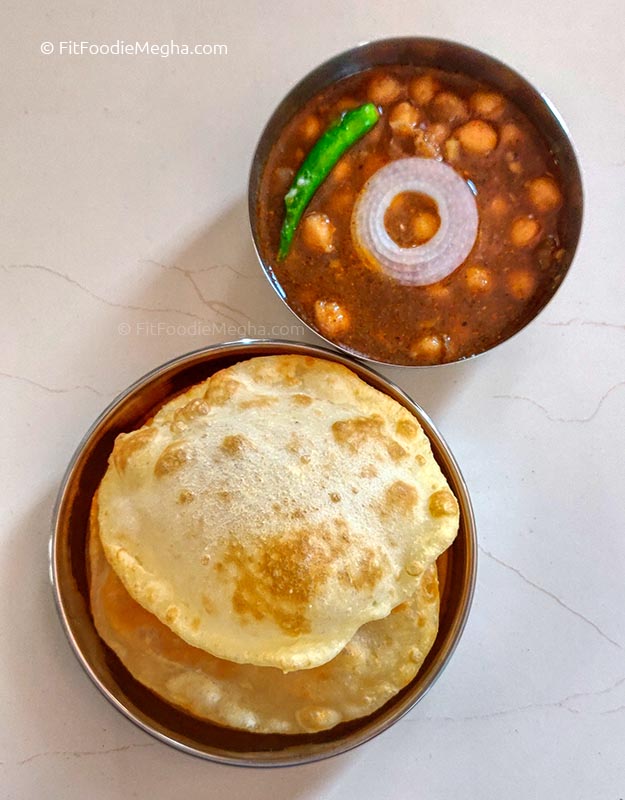Chhole Bhature, a quintessential North Indian dish, holds a special place in the hearts and palates of millions.
Chhole Bhature is widely believed to have emerged from the vibrant culinary landscape of Punjab, a region renowned for its rich and robust cuisine. The individual components, chhole and bhature, likely existed independently for centuries. Chickpeas have been a staple in Indian diets for millennia, and various forms of leavened and unleavened breads are deeply ingrained in the subcontinent's culinary traditions.
Chhole Bhature is intrinsically linked with breakfast in North India. Its substantial nature provides a burst of energy that lasts for hours, making it an ideal start to the day. The combination of carbohydrates from the bhature and protein from the chickpeas offers a balanced and fulfilling meal. Families often gather around for a weekend Chhole Bhature breakfast, and it's a popular choice for celebratory occasions and festivals. Other breakfast options in India are...
However, its appeal extends beyond just breakfast. Many enjoy it for a hearty lunch, especially when needing a substantial and satisfying meal on the go. Its portability and ease of consumption make it a favorite for office-goers and travelers alike. Some even opt for a lighter version as an early dinner, showcasing its versatility.
The accompaniments truly complete the Chhole Bhature experience. A cooling side of sliced onions, often soaked in vinegar, provides a refreshing contrast to the spicy chhole.
The combination of these two elements into the beloved Chhole Bhature we know today is thought to have gained prominence in the urban centers of Punjab, particularly Amritsar, before migrating across the Delhi and other parts of North India. The dish quickly captivated the palates of a diverse population, becoming a staple for locals and travellers, its popularity soaring due to its satisfying nature and relatively affordable ingredients.
The magic of Chhole Bhature lies in the interplay of its two main components.
Chhole: The heart of the dish is the chickpea curry.
- Traditionally, dried white chickpeas (kabuli chana) are soaked overnight and then boiled** until tender.
- The gravy is a complex blend of aromatic spices, often including cumin, coriander, turmeric, red chili powder, garam masala, and dried fenugreek leaves (kasuri methi).
- Onions, ginger, and garlic form the base, sautéed until golden brown, followed by pureed tomatoes or tomato paste, which lend a tangy sweetness.
- The slow simmering allows the flavors to meld, creating a rich, thick, and incredibly flavorful curry.
Bhature: The perfect accompaniment to the spicy chhole is the fluffy bhature.
- Unlike regular bread, bhature dough is typically made with all-purpose flour (maida), a touch of semolina (sooji) for crispiness, yogurt for tenderness and a slight tang, and a leavening agent like baking soda or yeast.
- Some recipes also include a small amount of sugar or oil.
- The dough is kneaded until smooth and elastic, then left to rest, allowing it to ferment and rise.
- When ready, small portions of the dough are rolled into oval or round shapes
- Deep-fried in hot oil until they puff up like balloons and turn golden brown, creating a light, airy, and slightly crispy texture.
While the core concept remains the same, Chhole Bhature exhibits fascinating regional variations, each adding its unique touch to the beloved dish.
In Delhi, often considered the Chhole Bhature capital, the bhature tend to be larger and softer, while the chhole are spicier and often have a darker hue due to the addition of a tea bag or anardana (dried pomegranate seeds). Delhi's street vendors are famous for their quick service and a generous garnish of pickled onions and green chilies.
In Punjab itself, the chhole might be slightly less spicy, emphasizing the earthy flavor of the chickpeas and a more pronounced tang from dried mango powder (amchur). The bhature can be a bit thicker and chewier, sometimes made with a sourdough starter for a distinct flavor.
In parts of Uttar Pradesh, particularly Lucknow, you might find a subtly different preparation, with a richer, more elaborate gravy for the chhole, perhaps incorporating a touch of cream or nuts for a milder, more decadent flavor profile.
Some places even offer variations in the bhature itself, with fillings like paneer (Indian cottage cheese) or potatoes, adding another layer of texture and taste.
More than just a dish, Chhole Bhature is a cultural icon, representing the warmth, hospitality, and vibrant culinary traditions of North India.










This looks delicious and very filling. I like that it can be eaten for both breakfast and lunch with a little variation.
ReplyDelete